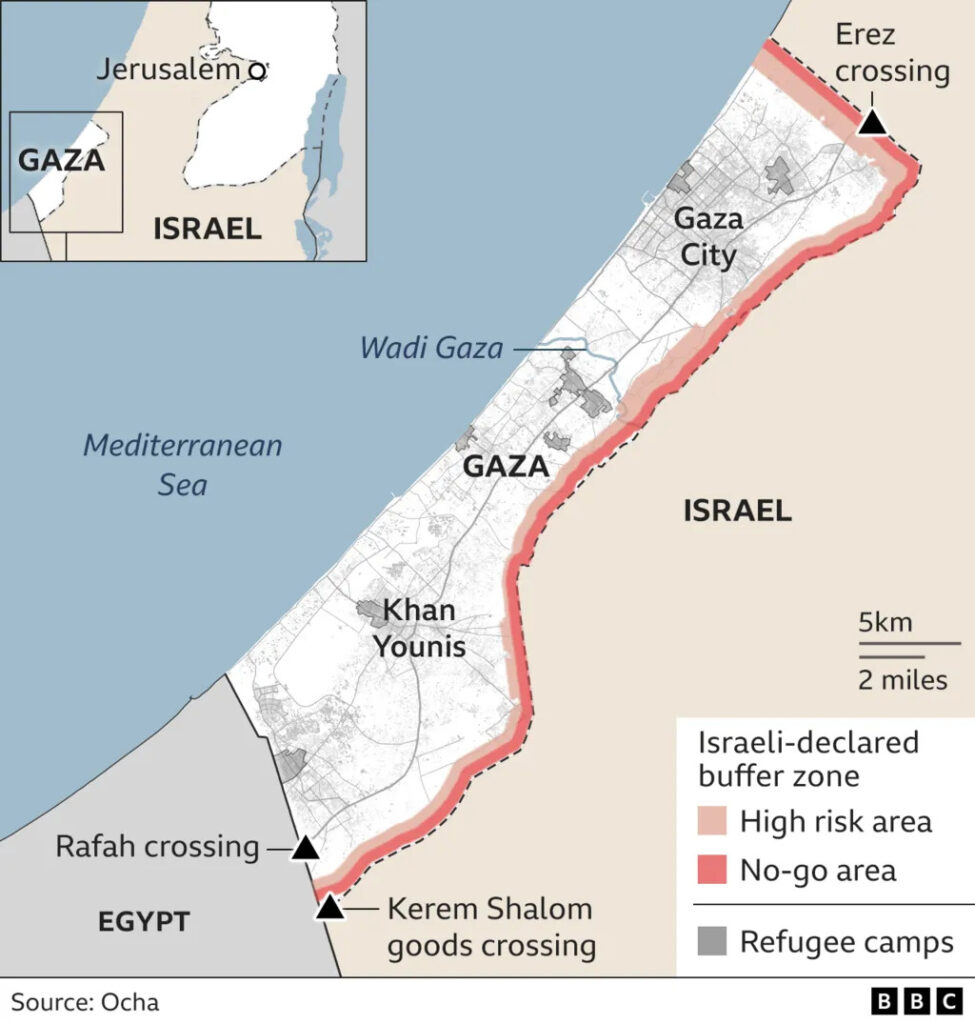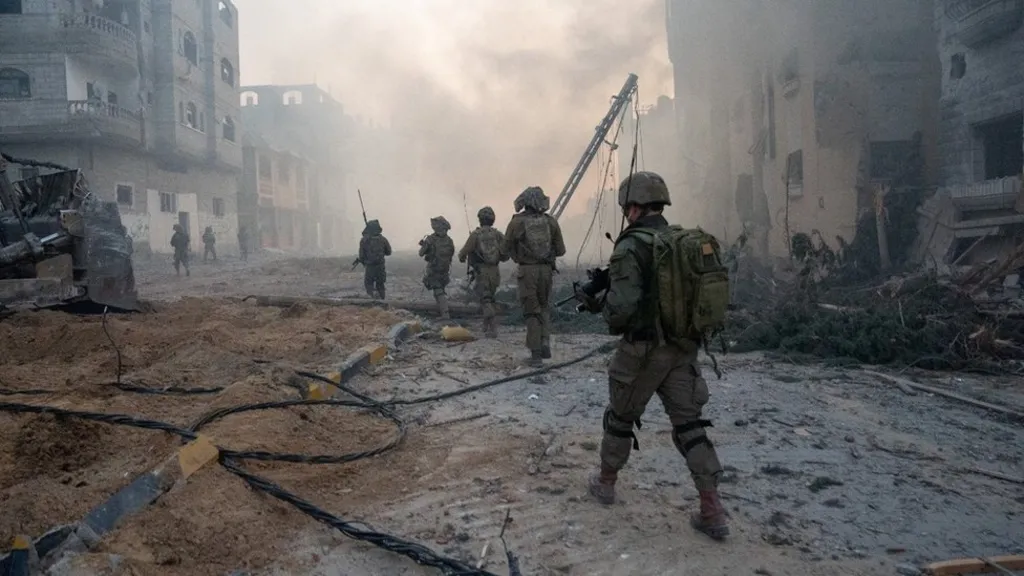The Hamas-run health ministry reports that the death toll in Gaza has surpassed 25,000 during Israel’s offensive. Within the last 24 hours, 178 deaths occurred, marking one of the deadliest days in the ongoing conflict. Despite the escalating casualties, Prime Minister Benjamin Netanyahu of Israel has once again rejected the idea of creating a Palestinian state. The White House acknowledges a clear difference in perspectives between the US and Israel regarding a two-state solution.
The Israeli offensive began following the 7 October attack by Hamas fighters, resulting in 1,300 deaths in southern Israel and over 240 hostages. The conflict has persisted for more than three months, with Israel focusing its air and ground operations on southern Gaza, particularly in the city of Khan Younis, where top Hamas commanders are believed to be holed up. The IDF discovered a tunnel in the region, containing booby-traps and blast doors.
In the north of the Gaza Strip, near the town of Jabalia, Hamas reportedly seized an opening, leading to renewed attacks on Israeli soldiers. US intelligence estimates indicate that Israel has killed 20-30% of Hamas fighters, falling short of Netanyahu’s goal of “completely destroying” the group. The classified report suggests that Hamas still possesses enough munitions for continued strikes, raising concerns about a prolonged conflict.
The slow progress, the absence of captured or killed top Hamas commanders, and the plight of Israeli hostages have fueled anti-government sentiment in Israel. Protests by relatives of those held by Hamas continue, urging prioritization of hostage release over the ambitious goal of destroying Hamas. A relatively small anti-war movement is also demonstrating against the intense and destructive military campaign in Gaza. Despite rallying around the flag, only 15% of the public believes Prime Minister Netanyahu should remain in office once the war ends, according to a recent poll.

The conclusion of the conflict is increasingly a point of contention between Prime Minister Benjamin Netanyahu and Israel’s western allies. Following his first conversation with US President Joe Biden in nearly a month, Netanyahu reiterated his opposition to a future Palestinian state. In a post on X (formerly Twitter), he emphasized the necessity for Israel to maintain “security control over the entire area west of the Jordan River,” encompassing the Israeli-occupied West Bank.
Netanyahu, a long-time opponent of a Palestinian state, seems to be reaffirming this stance amid growing unpopularity. He appears to align with the prevailing sentiment in a nation deeply affected by the attacks and resistant to the idea of an independent Palestinian state. This move, driven by a perceived fight for political survival, clashes with frustrated Israeli allies who envision the current bloodshed as an opportunity for both sides to engage in meaningful diplomacy toward a sustainable two-state solution.
UK Defence Secretary Grant Shapps expressed disappointment in Netanyahu’s position, while the White House acknowledged a clear divergence in perspectives between the US and Israel. United Nations Secretary-General Antonio Guterres went further, deeming the refusal to accept a Palestinian state “completely unacceptable” and warning that it could indefinitely prolong a conflict posing a significant threat to global peace and security.

